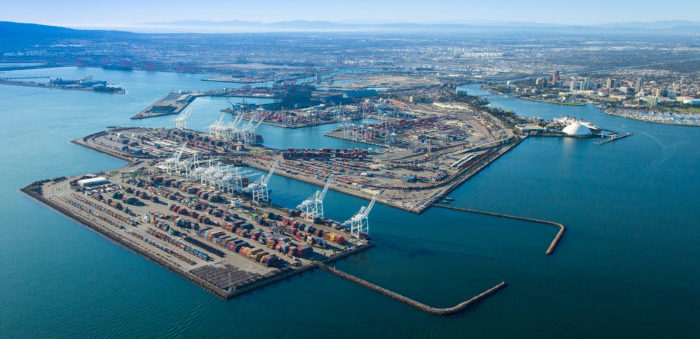The Port of Long Beach and the Utah Inland Port Authority shake hands in order to develop new strategies aimed at moving goods quickly, safely and efficiently.
The four-year, nonbinding pact is aimed at improving import and export cargo flows between the nation’s second-busiest seaport and Utah’s logistics network.
As informed, this agreement is vital to the Port’s strategic goals to diversify exports and create new partnerships that will help alleviate the unprecedented cargo surge of coronavirus.
Under the agreement, the Port of Long Beach and Utah will collaborate on business opportunities and share information as they undertake major projects expected to improve the speed and efficiency of cargo shipments between Southern California and Utah.
The Port of Long Beach plans to invest $1 billion in rail improvements over the next 10 years to ease the flow of cargo moving through its complex. In turn, the Utah Inland Port Authority will strengthen its ability to transfer imports and exports to more efficient modes of transportation for further supply chain distribution.
Additionally, the Port of Long Beach and the Utah Inland Port Authority will collaborate and share data on efforts to improve air quality and energy efficiency by deploying alternative-fuel vehicles and other clean-air technologies.
The agreement also calls for joint marketing to shared trade industry partners, studying how to resolve existing supply chain issues, and expanding export opportunities for Utah and surrounding states.
The Utah Inland Port Authority is a state agency with a regional approach to increase utilization and expand access for commerce throughout Utah. UIPA improves logistics infrastructure within the statewide system through high-speed broadband and zero emissions tech to revolutionize how logistics are done. One third of Utah’s GDP, employment, and incomes are dependent on the logistics system.






























































